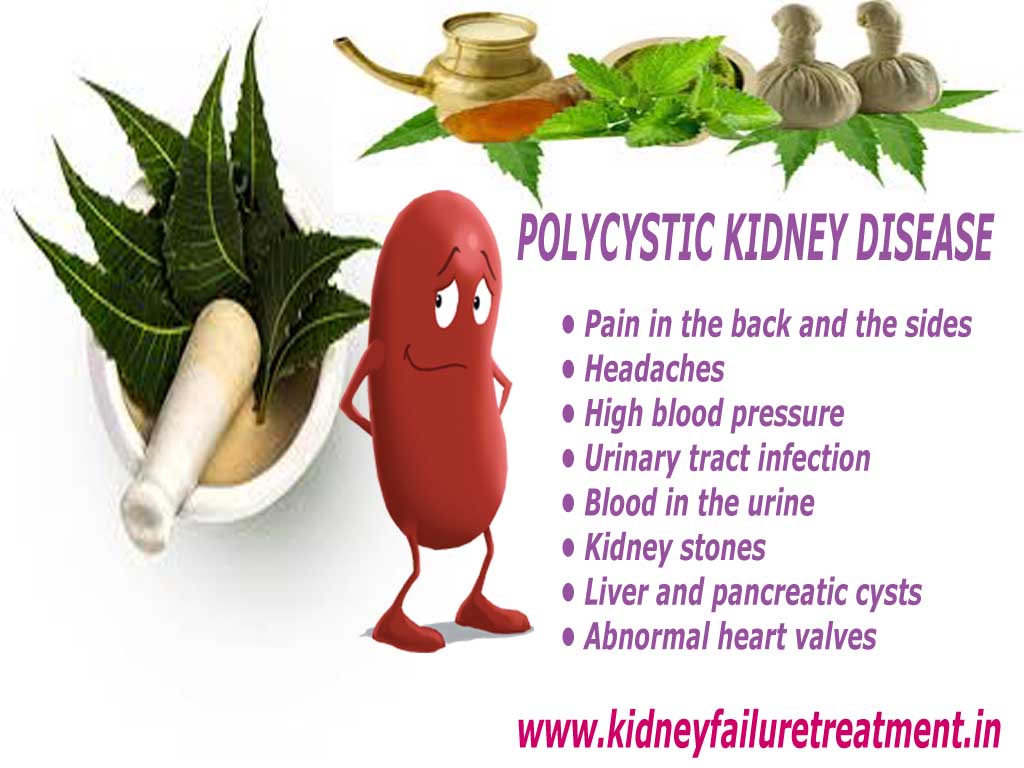Polycystic Kidney Disease Prognosis, Karma Ayurveda – Dr. Puneet Dhawan

Polycystic literally means many cysts. These cysts are the fluid-filled sacs that may vary in sizes. Polycystic kidney disease is an inherited kidney disorder that develops multiple cysts on the lining of the kidneys making then enlarge in their size. Polycystic kidney disease is a type of kidney disorder that is associated with a number of conditions like hypertension, urinary tract infections, kidney stones and kidney failure. About 5% of patients conducting Dialysis or kidney transplant suffer from PKD. Polycystic kidney disease prognosis
TYPES OF POLYCYSTIC KIDNEY DISEASE:
There are two broad types of PKD: autosomal dominant PKD (ADPKD) and autosomal recessive PKD (ARPKD).
- Autosomal dominant is the most common type seen among polycystic kidney disease patients. The symptoms of ADPKD are seen in the midlife. It follows a dominant inheritance in simpler words either of the parents should have it to transmit it to their kid. This creates 50% chances of inheritance.
- Autosomal recessive is a rare type of PKD leading to develop symptoms in infants and young children. One may develop ARPKD if each of your parents carries at least one faulty copy of the disease gene. Because of this 25% chance of having the disease are created. Polycystic kidney disease prognosis
Kidney failure occurs when kidneys fail to function properly, people opt for dialysis or kidney transplant treatment. Polycystic kidney disease is one of a cause of kidney failure.
SYMPTOMS OF POLYCYSTIC KIDNEY DISEASE:
Polycystic kidney disease progresses slowly. It does not show symptoms in the initial stages only tests reveal the disease. The most common symptoms develop in ADPKD include:
- Pain in the back and the sides
- Headaches
- High blood pressure
- Urinary tract infection
- Blood in the urine
- Kidney stones
- Liver and pancreatic cysts
- Abnormal heart valves “Polycystic kidney disease prognosis”
HOW TO DIAGNOSE AND TREAT PKD?
Polycystic kidney disease is diagnosed through an ultrasound. The sound waves are used in this test to detect the presence of cysts in the kidneys. Ultrasound helps to show both, the size and the number of the cysts in the kidneys and the liver. CT scan and X-ray are other tests conducted to diagnose the polycystic kidney disease in the body.
Allopathy claims that PKD, once happen cannot be cured, but can be managed. Polycystic kidney disease being genetic, have to be treated throughout the life. Ayurveda, unlike allopathy, believes that kidneys cells revive over a period of time. PKD can certainly be cured by right kind of treatment measure that sustains for life and provides zero side effects. Polycystic kidney disease prognosis Ayurveda underlines certain dietary measures that help to reduce the effects of polycystic kidney disease:
- Herbal teas are best options for PKD patients.
- Garlic is a superfood that should be consumed by the PKD patients as it reduces the oxidative stress and helps in reducing the size of the cysts.
- PKD Patients must include fresh fruits and vegetables in their diet
- Increased consumption of Fiber should be done to keep the kidneys free from cysts and infections.
- Fat should be restricted by PKD patients Patient
- Soya and vitamin D rich foods work best for PKD patients
- PKD patients should avoid foods like Spinach, beets, eggplants Polycystic kidney disease prognosis
Karma Ayurveda, a renowned name in Ayurveda sector, currently works under the supervision of a well-recognized physician Dr. Puneet Dhawan whose ayurvedic skills have worked best for polycystic kidney disease patients. Karma Ayurveda offers best of its natural treatment that includes herbal medicine and healthy diet plans which are long-lasting and cause no side effects.
